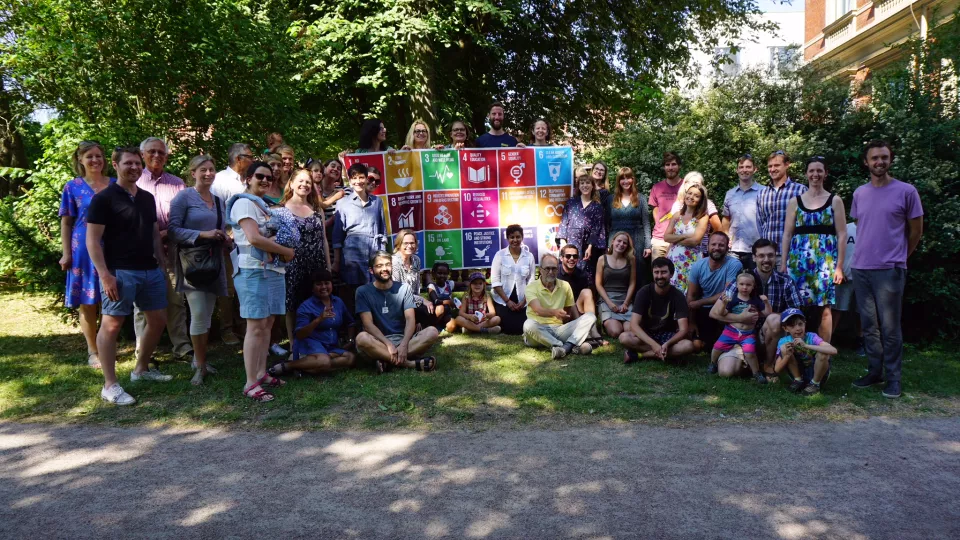This is important she notes, because today the SDG.s are becoming increasingly recognized worldwide – and many sectors have begun to work strategically with goals.
– Now we have a shared frame work by which we can communicate and explain our work, especially to communities outside of academia. We can start up new conversation about our research. The frame work can also open the door to new collaborations and research opportunities that involves different partners, since the goals can be used as a unifying structure, not least in grant applications.
According to Emily Boyd, the research carried out at LUCSUS are in line with many of the goals especially those of gender equality, zero hunger, sanitation and clean water, and sustainable cities – and she says that the centre has a long standing research expertise in the area of climate change and resilience, urbanisation and land use, governance and development.
Yet, as she sees it, the work on SDG:s are only in the beginning stages, and there is a lot more to be done.
– We are three years in and we have started to see some implementation of the goals. I think that implementation will pose a big challenge to national governments, local authorities and interest organizations. It takes times to go from a high-level concept to actual action – and this is where we as researchers can come in with more critical in depth analysis of the goals.
She says that researchers can pose important and critical questions relating to the goals, synergies between goals and trade-offs. Such tradeoffs can be those between climate action and consumption and economic development.
– By studying trade offs, synergies and interlinkages between goals, especially with the critical perspective we have at LUCSUS, we can help create more knowledge on the goals, including how we as a society can achieve the different targets. It will not be enough in the future, I think, to only say that you are working with goals, we need to be able to measure how far we have come.
Another area that will be important, she says, will be research on the actual goals themselves, not on the aims of the goals.
– Soon, countries will have to start reporting back to the UNDP how they are getting on with the SDG:s. It will be interesting to see how the various nations have done: is it possible to achieve the targets? We also need to have a discussion about why some goals such as responsible consumption seems quite hard to achieve while we have come quite far on quality education and gender equality.
Emily Boyd reflects that in the future, the goals might be different since they will need to evolve as more work and research is done on how to meet the targets. They might also need to include a stronger focus on environmental goals as the world is experiencing the negative effects of climate change, as well as a focus on reducing inequalities that exists in societies.
– Some researchers critique the goals because they are weak on environmental components and also because they do not deal with structural inequalities. While I think this is true, again, I think this is where researchers can come in and highlight the gaps – what is not covered in the current frame work?
She concludes that, overall, the fact that the goals are now in place, and recognized all over the world, is a very positive thing, and something that can go a long way in creating a unified vision of what we have to do as a society.
– But to really get somewhere with the goals we have to connect with communities, people and youth. Without that buy-in, we as researchers, organisations and national governments alike will not be able to achieve the targets, she says.
